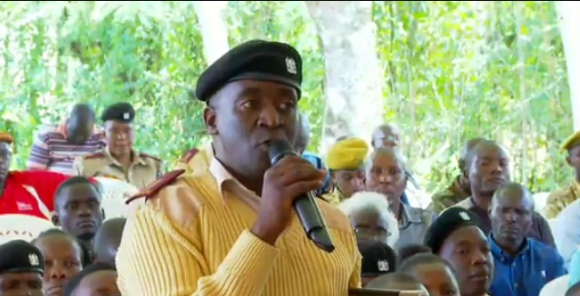
The government has been urged to reconsider its strict stance on chang’aa, with some stakeholders calling for regulation rather than prohibition.
Speaking during the Jukwaa la Usalama forum attended by Interior Cabinet Secretary Kipchumba Murkomen, Maliera sub-location assistant chief Nicholas Awuor argued that legalising and regulating the production of the traditional brew could yield better results than continued crackdowns.
He noted that chiefs have been enforcing chang’aa bans for decades without achieving lasting change.
“My grandfather was an assistant chief in 1968, and the same people he was arresting for brewing chang’aa are the same people I am arresting to date. That tells you the kind of resilience our people have,” Awuor said.
Awuor revealed that he and seven colleagues have been working on a policy proposal recommending the regulation of chang’aa distillation and packaging.
He said such a shift could transform the brew from an illicit product into a source of employment and economic activity.
“If we provide resources so that distillation and packaging are properly regulated, then we can have chang’aa from Siaya that can be sold legally. This would not only safeguard consumers but also create jobs,” he said.
He explained that properly distilled chang’aa is made from maize flour, sorghum, and sugar; ingredients already used in legal alcoholic beverages.
Awuor further observed that punitive measures often fail to address the underlying poverty in households where chang’aa is brewed.
“There are places you go and see poverty with your own eyes. Instead of arresting, you sometimes just leave them,” he said.
















